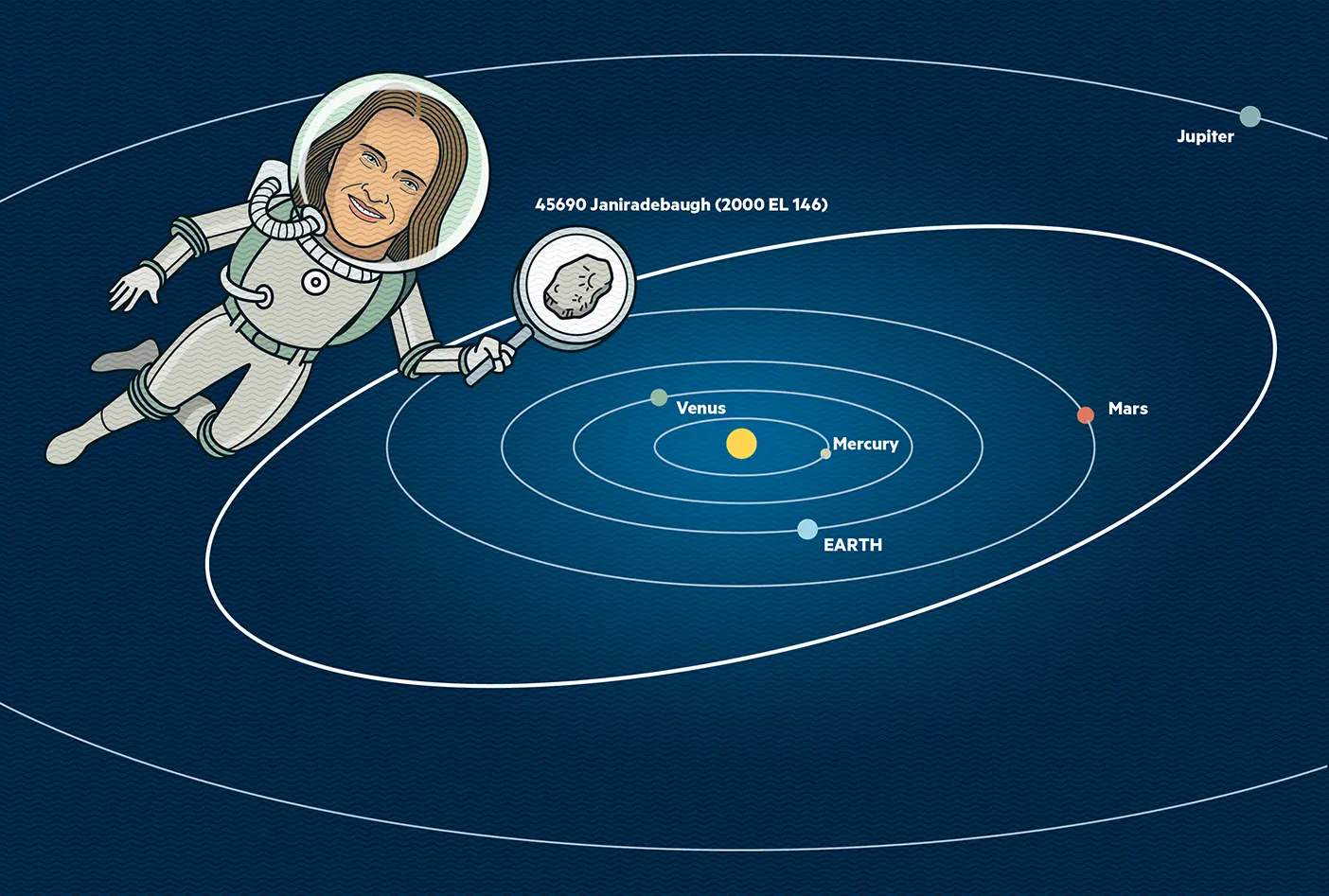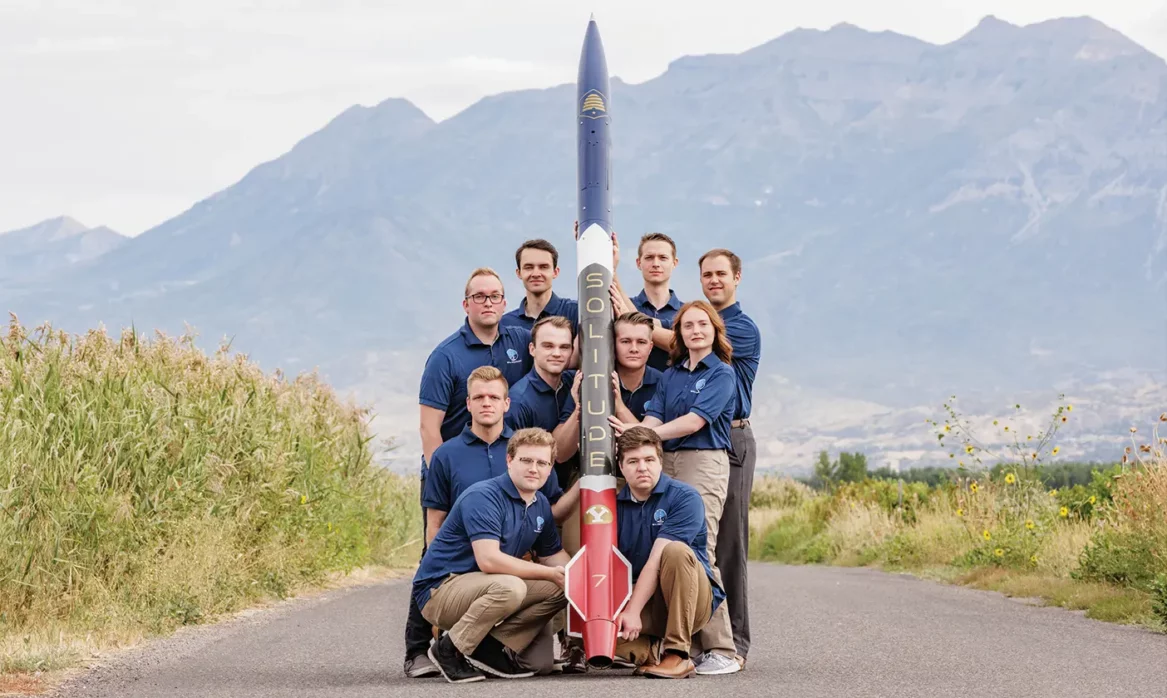
Between the orbits of Mars and Jupiter, nestled within the asteroid belt, is a wandering
minor planet named after a shining star in the field of planetary science: Jani Radebaugh (BS ’93, MS ’99). The BYU planetary-geology professor earned this cosmic honor due to her research and involvement with the Dragonfly mission, a mission designed to search for building blocks of life within the sand dunes of Saturn’s moon Titan.
The International Astronomical Union, a community responsible for naming astronomical objects and planetary features, selected this minor planet to recognize her work in the field. “It’s such a fun honor,” Radebaugh says. Radebaugh describes her asteroid as “decently big.” But “if you walk faster than a spider, you’ll pull yourself into orbit, [since] there’s not much gravity…. Your friend would have to grab your foot and hopefully not get pulled up too.” The little planet orbits the Sun at an incline of about 14 degrees, outside the orbital plane of the rest of the solar system. Radebaugh is charmed by the idea that her planet “marches to its own drum.”
3
The number of Utahns who have planets named after them: Radebaugh; Holly Holman, a biomedical engineer at the University of Utah; and Patrick Wiggins, a NASA solar system ambassador who nominated both Holman and Radebaugh.
2.5 miles
The distance across this bright, metallic planet.
45690
The original name of the minor planet. The floating rock now boasts the NASA-official name 45690Janiradebaugh.












